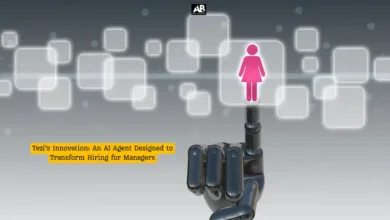Investors Rebel as TuSimple Shifts from Trucks to AI Gaming
In a surprising move, TuSimple, the startup once hailed as a trailblazer in autonomous trucking, is pivoting to AI-generated animation and video games. This dramatic shift has not only bewildered shareholders but has also ignited legal disputes over the company’s substantial remaining assets.

TuSimple’s Unexpected Pivot
Founded in 2015, TuSimple initially garnered acclaim for its advancements in self-driving trucks. The company, headquartered in San Diego and with operations in Tucson, had been a notable player in the autonomous vehicle (AV) sector. It raised $648 million from a mix of Chinese and U.S. investors, including major players like Nvidia and UPS. The IPO in 2021 further bolstered its position, with a valuation of $8.49 billion.
However, the company’s trajectory took a nosedive due to internal strife, a high-profile crash, and regulatory scrutiny over its ties with China. By early 2024, TuSimple’s stock had plummeted, leading to its voluntary delisting and a current over-the-counter trading price of around $0.19 per share.
The Shift to AI Animation
In August 2024, TuSimple announced a bold new direction: a focus on AI-generated animation and video games. This pivot, which includes a project based on the popular science fiction series “The Three-Body Problem,” marks a stark departure from its original mission. The move aims to leverage AI technology to create high-quality content more efficiently. Despite the innovative potential, this shift has sparked significant controversy.
Shareholder Backlash
The decision to reallocate resources from autonomous trucking to AI animation has not been well received by many investors. Shareholders have expressed outrage over what they see as a misappropriation of funds. They allege that TuSimple’s management may be using company assets to benefit private ventures tied to co-founder and chairman Mo Chen. This accusation comes amid ongoing legal battles, including a class action lawsuit the company is close to settling for $189 million.
An anonymous group of shareholders sent a letter to TuSimple’s board in July, accusing the company of potentially fraudulent activities and failing to disclose its pivot to AI animation. They also threatened litigation, though no suits have been filed as of now.
Financial and Legal Complications
One of the core issues is the $450 million in funds that remain in U.S. accounts, largely inaccessible due to ongoing lawsuits and a temporary restraining order. This legal restraint prevents TuSimple from moving the funds to its Chinese subsidiary, TuSimple China, which has been heavily investing in the new animation and gaming segment.
Global TuSimple CEO Cheng Lu has defended the pivot, arguing that the move is a logical extension of their technology and could provide significant returns. However, shareholders remain skeptical, especially given the company’s prior struggles and the high costs associated with its new business ventures.
The Future of TuSimple
TuSimple’s transition from autonomous trucks to AI animation and gaming reflects broader trends in the tech industry, where companies often pivot to capitalize on emerging opportunities. However, this change comes with risks, particularly when it involves reallocating funds from a troubled but still potentially lucrative segment like autonomous trucking.
The company’s future hinges on its ability to successfully navigate these legal and financial hurdles while proving the viability of its new business model. The transition may be seen as a desperate bid to recover value and stay relevant, but it could also set a precedent for other tech firms facing similar crossroads.
Top 5 FAQs :
- What prompted TuSimple’s shift from autonomous trucks to AI gaming?
- TuSimple’s decision to pivot to AI animation and gaming was driven by the need to revitalize its business and capitalize on the growing AI and entertainment markets.
- How has this shift affected TuSimple’s investors?
- Many investors are unhappy, accusing the company of misappropriating funds and failing to disclose important information about the pivot.
- What are the main legal challenges TuSimple is facing?
- TuSimple is dealing with several lawsuits, including a class action settlement, and a temporary restraining order that prevents it from transferring funds to its Chinese subsidiary.
- What is the current financial status of TuSimple?
- The company’s stock price has fallen dramatically, and it is currently trading over-the-counter. TuSimple has around $450 million in funds that are largely inaccessible due to ongoing legal issues.
- What are the potential outcomes of TuSimple’s pivot to AI animation?
- The success of this pivot will depend on TuSimple’s ability to effectively leverage its AI technology in the animation and gaming sectors, while overcoming legal and financial challenges.





